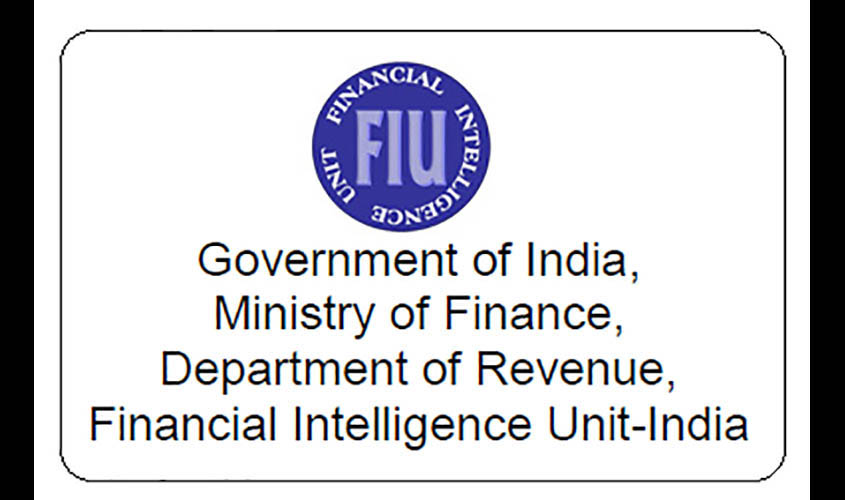New Delhi: Public Sector Undertaking (PSU) banks have emerged as the new preferred channel partner for money laundering, unlike in the past where private banks were used more frequently. The Financial Intelligence Unit (FIU) of India has come across multiple instances where the PSU banks have failed to adhere to steps that are required to stop money laundering through banks. In many cases, the FIU has levied penalty on these banks and repeatedly asked them to focus more on anti-money laundering mechanism, but most of their requests have gone unheeded.
In one order dated 31 July, the FIU had to impose a fine of Rs 2.87 crore on Punjab and Sind Bank for not following the norms stipulated under the Prevention of Money Laundering Act (PMLA), 2002. The bank had failed to identify and verify beneficial owner in accounts of several of its customers, failed to enable a system to record any suspicious pattern where multiple transactions just below the threshold were attempted or undertaken by walk-in customers and failure to fully implement a due diligence programme to identify beneficial owner details and risk assessment.
The same lacuna was witnessed by the FIU while going through the record books of the Indian Overseas Bank after which a penalty of Rs 10.40 lakh was imposed earlier this year.
A massive fine of Rs 15.62 crore was imposed by the FIU on Punjab National Bank for failing to comply with the norms that are stipulated to stop money laundering.
In an order dated 22 May, FIU Director Pankaj Kumar Mishra imposed a fine of Rs 14 lakh on Andhra Bank for failing to comply with the norms given under PMLA. The bank had failed to accurately record details in at least 13 Suspicious Transaction Reports (STRs) which are the most effective way to prevent and detect money-laundering. The bank had failed to mention even basic details like customer profile, profile of business, and annual income in the STR.
It is not just the PSU banks which have failed to comply with anti-money laundering mechanism, even cooperative banks have failed to strictly adhere to these rules. Guwahati-based Nagarik Samabay Bank Limited had to pay a fine of Rs 3 lakh for failing to report counterfeit currency transactions and failing to have a mechanism to detect Fake Indian Currency Notes (FICNs).
Urban Cooperative Bank Limited, Shivamogga, Karnataka, was similarly fined Rs 6.20 lakh for failing to adhere to anti-money laundering norms. Prime Co-operative Bank Limited, Surat, too was recently fined Rs 3.90 lakh for not submitting details of suspicious transactions.
The FIU is the nodal Indian agency to combat money laundering in India and its director has powers of a civil court under the Code of Civil Procedure, including powers to enforce attendance of any person, compel production of records, receive evidence on affidavits and issuing commission for examination of witnesses.
STRs are reports of a suspicious transaction which is described as a transaction which gives rise to a reasonable ground of suspicion that it may involve proceeds of an offence regardless of the value involved, appears to be made in circumstances of unusual or unjustified complexity, appears to have no economic rationale or bonafide purpose; or gives rise to a reasonable ground of suspicion that it may involve financing of the activities relating to terrorism.
As per the FIU annual report, the number of STRs received has increased from 4,409 in 2008-09 to 14,36,340 in 2017-18.
Officials say that the lack of compliance to anti-money laundering norms in the PSU banks was a major concern. “The compliance level in PSUs is very low and we are not able to detect each and every lapse because of lack of manpower. The STRs are very vital in detecting black and suspicious money transactions. During 2017-18, based on the STRs disseminated by FIU, the Central Board of Direct Taxes (CBDT) detected unaccounted income of Rs 11440.38 crore, while the ED seized unaccounted assets of Rs 984.98 crore. In the last four years (2014-18), the cumulative value of the unaccounted income detected by CBDT was Rs 19,627.99 crore; by ED Rs 1117.45 crore, by Central Board of Excise and Customs (CBEC) Rs 48.59 crore and by the Directorate of Revenue Intelligence (DRI) Rs 300 crore. We have been following up with the RBI regularly to make the PSU banks more serious about compliance rules when it comes to an anti-money laundering mechanism,” an authoritative source with the Ministry of Finance said.

